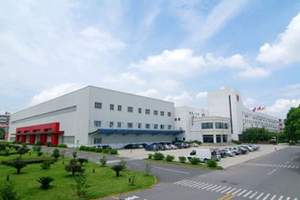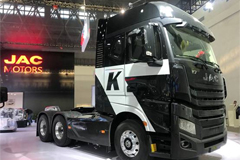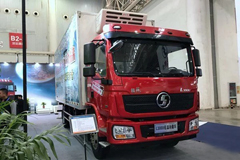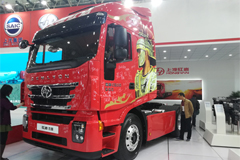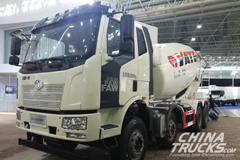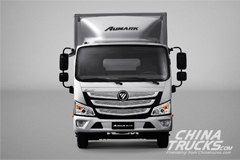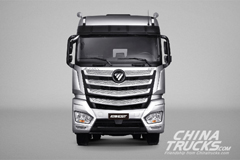Volvo, Scania to See Profit Drop as Truck Glut Widens
Eugene Shakalida aimed in 2007 to triple the fleet of heavy trucks at a logistics company he co- owns near Moscow. Now, he won’t buy a single one this year.
Shakalida, 40, is trying to avoid job cuts as prices for cargo shipments plummet as much as 40 percent. His company, Trasko, spent a decade growing from a handful of workers and trucks to 320 employees and 90 vehicles, he said in a telephone interview.
Trasko’s reversal of fortunes reflects the demise of the heavy-truck industry as demand runs dry for goods from car parts to household appliances in regions including eastern Europe, which was a main engine of the previous boom. European heavy- truck sales may plunge as much as 40 percent this year, hurting Volvo AB, Scania AB and MAN AG, who together account for 54 percent of that market.
“The current slowdown in industrial activity across the world has few precedents,” said Carl Holmquist, an analyst with Danske Bank in Copenhagen. “Very few companies can do anything to protect short-term margins.”
European truckmakers’ earnings will fall 60 percent to 80 percent this year, Credit Suisse analyst Arndt Ellinghorst estimates. Volvo and Scania report fourth-quarter earnings this week, while MAN will release results Feb. 19.
Profit Decline
Scania, based south of Stockholm, will likely say fourth- quarter net income fell 24 percent to 1.92 billion kronor ($230 million), according to the median estimate of seven analysts surveyed by Bloomberg. That would mark the first quarterly profit decline in three years. Larger Swedish rival Volvo may say profit fell 75 percent to 1.01 billion kronor, the biggest drop in more than eight years, when it reports three days later on Feb. 6.
The companies declined to comment on the earnings ahead of their release. MAN fell as much as 1.78 euros, or 5.2 percent, to 32.34 euros, and was trading 4 percent lower as of 11:35 a.m. in Frankfurt. Volvo was down 1.30 kronor, or 3.9 percent, while Scania was 0.4 percent lower.
From 2005 to 2007, the growing economies of eastern Europe and Russia fuelled the European heavy-truck boom, with sales in eastern Europe in that three-year period nearly tripling. For years, truckmakers were able to boost prices as demand exceeded supply, with customers waiting a year or more to get new trucks.
New Factories
Scania and Volvo announced plans in 2007 to build plants in Russia, while MAN opened a 100 million-euro ($131 million) factory in Poland that year to tap the booming economies. Scania has since said it has made no final decision on the plant, while Volvo opened its factory, which can make 15,000 trucks, two weeks ago. Production will be low initially, Volvo said at the time.
MAN has postponed plans to add a second shift at the new Polish plant and is reducing the current workforce, Nina Gutzeit, an MAN spokeswoman, said in an e-mail. The truckmaker is also reappraising its plans for additional dealerships, she said.
Today, the former boom region is leading the downward spiral. Eastern European deliveries plummeted 35 percent in the fourth quarter, contributing to a 20 percent plunge across the continent, according to the European Automobile Manufacturers Association. Volvo, the world’s second-largest truckmaker, won just 115 European orders in the third quarter, down from 41,970 a year. In November, Volvo’s truck sales plunged 21 percent.
Eastern Europe and Russia will slide into a recession this year, with the economies shrinking 0.4 percent, as demand for the region’s exports and commodities collapses, the International Monetary Fund forecast last week.
Dividend Cuts
The industry slump has also hit investors. Volvo shares are down 61 percent in a year, while Scania has dropped 48 percent in value. MAN, Scania’s second-largest investor, has lost 60 percent in the period. Volvo’s stock performance last year was the worst annual return since at least 1990. That followed years when the stock benefited from higher dividends and bonus payouts.
“It’s clear that dividends will probably be cut,” Jens Tischendorf, vice president of Cevian Capital AB, Volvo’s third- largest shareholder, said in a telephone interview from his Zurich office. “You can’t cut people, and still pay out the same dividend to investors.”
Gothenburg-based Volvo has within the last year announced plans to eliminate 15,900 permanent and short-term positions, Anders Vilhelmsson, a Volvo spokesman, said in an e-mail today. Negotiations with unions on the cuts are still ongoing, he said. MAN AG, Europe’s third-largest truckmaker, will idle plants for 70 days in the first half. Scania said in January it won’t renew the contracts of 2,000 temporary workers.
‘Reducing Inventory’
“Reducing inventory is a top priority” currently for Scania, as is preserving cash flow, Scania spokesman Erik Ljungberg said Jan. 29 in an e-mailed response to questions.
European heavy-truck sales in 2009 will plummet 25 percent to 40 percent as credit remains tight and transporters stop purchases, according to estimates from six analysts and investors surveyed by Bloomberg News, including Credit Suisse, Danske Bank and Citigroup. The euro-area economy will shrink 2 percent in 2009, the IMF forecasts.
Volvo and Daimler AG, the world’s largest truckmaker, can’t look to the North American market to offset losses in Europe. Daimler is eliminating jobs at its Freightliner subsidiary, and Volvo’s Mack unit delivered 17 percent fewer trucks in November. Scania and MAN are not present in North America.
“Truck buyers remain cautious due to a worsening U.S. economy and the spread of the credit and liquidity crisis around the globe,” Volvo said on Dec. 16.
Shakalida, the Russian co-owner of the logistics company, longs for the days when he had trouble getting his hands on new trucks because business was booming and truck makers were producing at full capacity.
“Everything was OK until November, when the situation changed because of the crisis,” Shakalida said.
Views:0
- Volvo Gets Order for 1,500 Volvo FH Aero Trucks from an Italian Logistics Compan 2024-07-23
- Volvo Trucks Will Be at the IAA Transportation 2024 Expo 2024-07-15
- Volvo Expands Its Range of Biodiesel-powered Trucks 2024-05-28
- Volvo and Daimler Truck to Form Software Joint Venture 2024-05-23
- World's First: Volvo Built Electric Trucks with Fossil-Free Steel 2022-11-11
- Volvo to Supply 20 Heavy-duty Electric Trucks to Amazon 2022-10-10
- Volvo Trucks Starts Series Production of Heavy Electric Trucks 2022-09-15
- Volvo Trucks Launches FH with I-Save in China 2022-04-29
- Volvo FH with I-Save to be Launched in China, Cutting Fuel Cost by 10% 2022-04-22
- Volvo, Daimler And Traton Agree On JV Charging Network for Europe 2021-12-27
Submit Your Requirements, We Are Always At Your Service.
- Jiefang Partners with FCTS to Develop Hydrogen-Powered Car Transport Vehicles
- Farizon Auto Sets Roadmap for Global Expansion
- JMC Assembles Kaiyun Euro 5 Models in Vietnam
- SuperPanther Teams up with DHL for Sustainable Logistics
- SuperPanther Partners with Steyr Automotive to Launch Electric Heavy-Duty Trucks
- JAC Showcases T9 EV Pickup at 2024 EVA Frankfurt Electric Vehicle Expo
- Zoomlion Reports Record Overseas Revenue Growth for H1, 2024
- Madagascar President Rajoelina Visits Foton Motor
- European Premiere for Kia PBV at IAA Hannover 2024
- SAIC Maxus RV Debuts at Düsseldorf Caravan Show in Germany
- Heavy Truck Sales Reach 59,000 Units in July in China
- Tractor Sales in H1, 2024 Reached 162,100 Units, Up 4%
- China's Truck Export Reaches 351,076 Units in H1 2024
- XCMG Dominates 2024 with Record Sales in New Energy Heavy Trucks
- Mid-Year Pickup Market Report: JAC Exports Up 13%, JMC Exceed 36,000 Units
- Truck Exports in May 2024: China Exported Close to 65,000 Trucks
- Exports of Pickups Reached 22,892 Units in May
- Exports Surge by 157%! DFAC Exports 9,628 Vehicles from January to May
- China's Heavy Truck Exports Rising 58% YOY to 276,000 Units in 2023
- China Exported 507,000 Trucks from Jan.-Sept., Up 21% YoY



